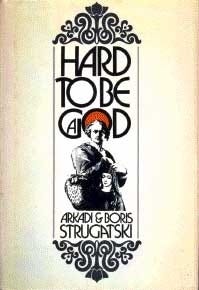Words for Worlds: Issue 5
Happy new year everyone! Wherever you are in the world, I hope you had a pleasant New Year’s Eve and Day, and I hope 2021 treats you well.
By the time the next newsletter comes along, I will finally have finished my edits and submitted the draft of my sequel to my publisher. I have a range of fascinating SFF on my TBR list for after that. But for now…
What I’m Reading
Andreas Eschbach's The Hair-Carpet Weavers, a 1995 classic of German science fiction.
The novel opens on a planet where the entire economy is dependant upon the crafting of hair-carpets: male carpet weavers spend an entire lifetime weaving one carpet out of the hair of their wives and sisters. These hair-carpets are then transported to the planet's port city, where - it is said - they are taken to line the palace of the immortal Emperor, somewhere in the galax(ies). But unknown to the planet and its carpet-weavers, the Emperor has been overthrown and killed twenty years ago. Meanwhile, spacecrafts from the victorious rebel force find that not just this planet - but thousands of such planets - are weaving countless hair-carpets, which are being sent not to the dead Emperor's palace (and never have been), but to an unknown destination in the universe.
I had a complicated reaction to this book. The premise is original and compelling. Also, as this was published in 1995, you can see its influence on later works - for example, there is a proto-version of Arkady Martine's imago machines. The prose style is excellent, and the atmosphere is very well done.
That said, I also have some serious problems with it. Death is obviously integral to science fiction/fantasy, but the body count in this novel seemed both gratuitous and unnecessary: there were multiple occasions when a character did not need to die for the narrative, but was killed off any way. At some point it began to come across as simply distasteful.
More seriously, the hair-carpet economic system is patriarchal, but a particularly stupid, unsubtle, and vicious form of patriarchy. Eschbach denies significant agency to his women characters (and his depiction of women is intensely problematic right until the end, even when the setting is not the hair-carpet planet), or spaces of resistance - which makes the social world-building both flat and untrue.
In short, I'd probably recommend this - simply for the originality of the premise - but it would be a heavily qualified recommendation. I think the book has many flaws, and it's an open question whether those flaws are fatal to the work, or whether it survives them.
The Indian Scene
The count-down has begun to the March release of S.B. Divya’s Machinehood, a near-future SF novel dealing with human-AI relations in the context of an exploitative gig economy. Around a year ago, I’d reviewed Divya’s collection of short stories - and the haunting novella, Runtime - for Mithila Review. I was struck by the spareness and economy of the prose, combined with the grandeur of ideas. I’m looking forward to Machinehood, and fortunately, have a review ARC which I began last night. As with books I review, I’ll talk more about the book when the review comes out.
What’s Happening at Strange Horizons
We’re excited about our first special issue - on Palestinian SFF - that’s due in March, and for which the calls went out in December. Submissions are open through January. Palestine has a long history of speculative fiction, from Emile Habibi’s classic Saeed the Pessoptimist to the most recent Book of Disappearance (Ibtisam Azem) and the yet-to-be-translated Second War of the Dog (Ibrahim Nasrallah). There is also the wonderful collection of short stories called Palestine+100, set 100 years after the Nakba (2049). At Strange Horizons, we feel privileged to be able to provide a platform for contemporary Palestinian SFF.
Recommendation Corner
Hard To Be a God, by Arkady and David Strugatsky.
Arkady and David Strugatsky were legendary Soviet science-fiction writers, active in the second half of the 20th century. A lot of their work was written with a view to avoiding the censor’s axe. Their most famous novel is Roadside Picnic, which deals with the fall-out of a nuclear accident. My personal favourite, however, is Hard To Be A God - part of their Noon Universe series - which addresses a range of fascinating questions involving social change, external interventions into society, and - as the title suggests - playing God. When the book was reissued in 2015 - amazingly, for the first time in a direct translation from Russian to English - for the Gollancz Masterworks series, I reviewed it for Strange Horizons.
Quote Corner
“It was easier to lie with a gesture than a word.”
Samuel Delaney, Babel-17






